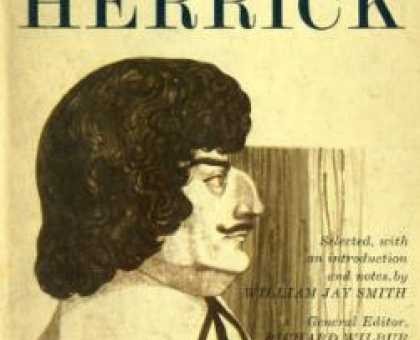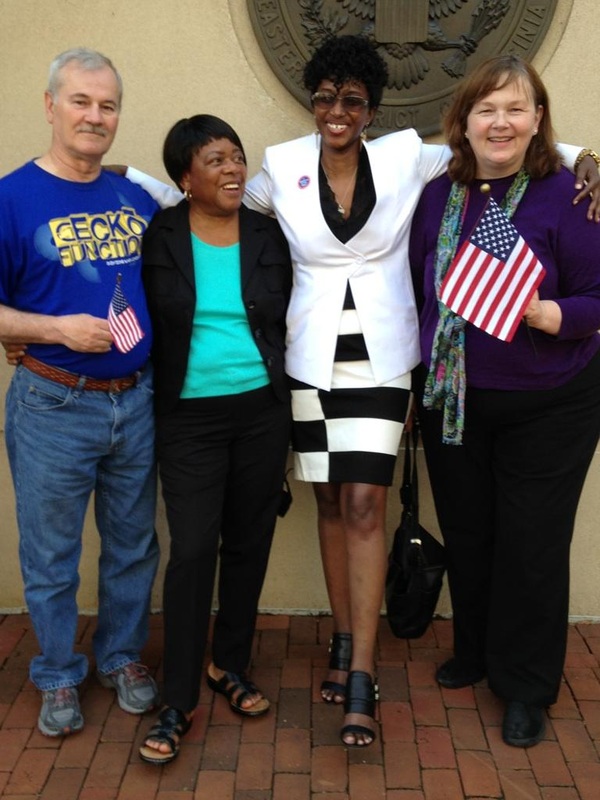|
Every name has a story, and our daughter Corinna tells hers in a lovely May Day essay today.
http://www.wilson500.com/uncategorized/my-name-day-and-the-value-of-a-good-affordable-education/ She tells the story on the day when she witnessed her friend Jacky Nkubito become an American citizen in DC. The name happened as Corinna tells it. I was taking a course on the Cavalier Poets with Dr. Ruth Stauffer at Hofstra College in the spring of 1960, the last semester of my very good liberal arts education. I loved the urgency of Andrew Marvell: Had we but world enough, and time, This coyness, lady, were no crime. It’s possible I might even have used those words, or at least felt the sentiment, in that beautiful flowering spring. I also loved the poem Corinna’s Going a-Maying by Robert Herrick, which our daughter describes so nicely. So how did we name our two other children? Marianne and I agree that her mom, still with us at 93, loved the name Laura. Also, Marianne and I both knew the David Raksin song “Laura,” from the noir movie of the same name, from 1944. Laura is the face in the misty light Footsteps that you hear down the hall The laugh that floats on a summer night That you can never quite recall. One version is by Frank Sinatra -- long before his ring-a-ding-ding stage, I hasten to add. It's a little lush, but a time piece. https://www.youtube.com/watch?v=7uXPeBRt1fM I was sold as soon as the name Laura was proposed for our oldest daughter. And she’s not the only Laura named for the song. In the comments portion of the youtube Sinatra version, LauraLaVitaEBella says her grandfather gave her the name. Bravo, Nonno. How did we arrive at David for our third child? Marianne notes that I wanted to name him Dylan. It would have been perfect. She counter-proposed David – for the Michelangelo statue in Florence. Many years later, I came to understand King David through the Leonard Cohen song, written in 1984, now one of the great touchstones of contemporary life. http://www.theatlantic.com/entertainment/archive/2012/12/how-leonard-cohens-hallelujah-became-everybodys-hallelujah/265900/ Personally, I am partial to the k.d. lang version on her glorious Canadian tribute, Hymns of the 49th Parallel. https://www.youtube.com/watch?v=f0UHv7mDG4s So I say, Hallelujah for music and poetry and art. Hallelujah for May Day. And Hallelujah for Citizen Jacky in DC today.
Roy Edelsack
5/2/2014 03:35:44 am
George you are going to turn me into a blubbering old fool. This beautiful column came on the same day that my son Samuel (named for his great uncle, the only european Edelsack who survived the holocaust) was awarded the New Jersey Governor's Medal for outstanding achievement in film. Sam is autistic but he won this outright against all high school students in the state.
George Vecsey
5/2/2014 10:12:18 am
wow, that is the best news of today.
Brian Savin
5/4/2014 04:09:22 am
Roy, there was a wonderful "article" on Charles Osgood's Sunday Morning an hour or so ago about the wonderful reporter/writer Ron Suskind's (e.g., "Confidence Men") autistic son whose life was transformed by the power of Disney movies. If life is a but a dream, dreams make our lives. Congratulations.
Ed Martin
5/2/2014 04:08:13 am
Lovely! Corinna's article overflows with love. Yours, as well, and Roy's comment adds more beauty.
George Vecsey
5/2/2014 10:14:08 am
Ed, thanks for looking up Corinna's piece. It is very rewarding to a parent of any age to see that a child has internalized something she heard (probably often in this case, but still.)
Mendel
5/2/2014 05:06:52 am
I always wondered what I would be called if my parents had not chosen the name of a deceased ancestor. Now, my children are also named for departed relatives. Not terribly creative, but sincere and sentimental.
George Vecsey
5/2/2014 10:18:21 am
Mendel, not at all. Growing up with Jewish friends, I heard many stories about the preservation of names. It is a wonderful custom, more poignant given the terrible gaps in history. We have some names that pop up from generation to generation, but having it as a custom makes it more touching. Shabbat Shalom. GV Comments are closed.
|
Categories
All
|











